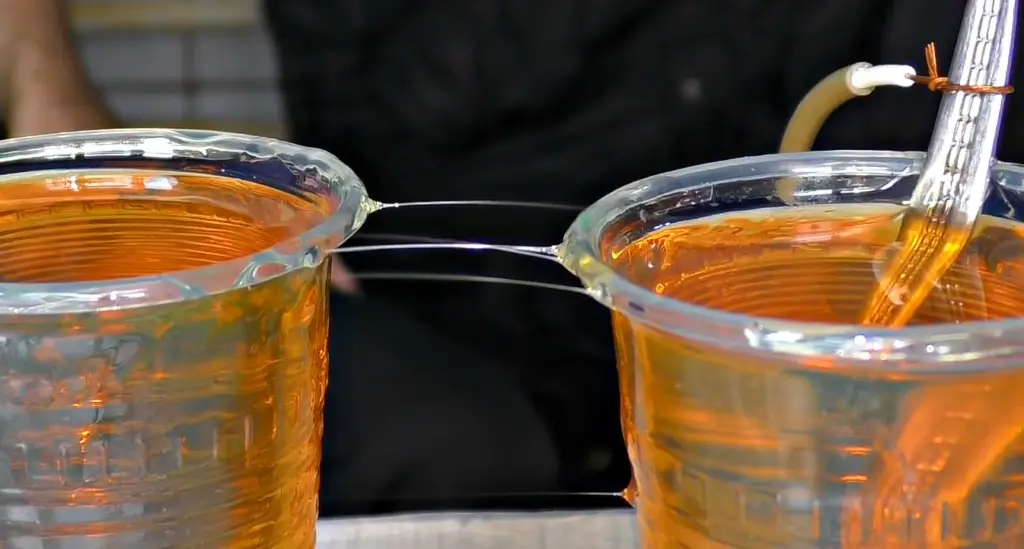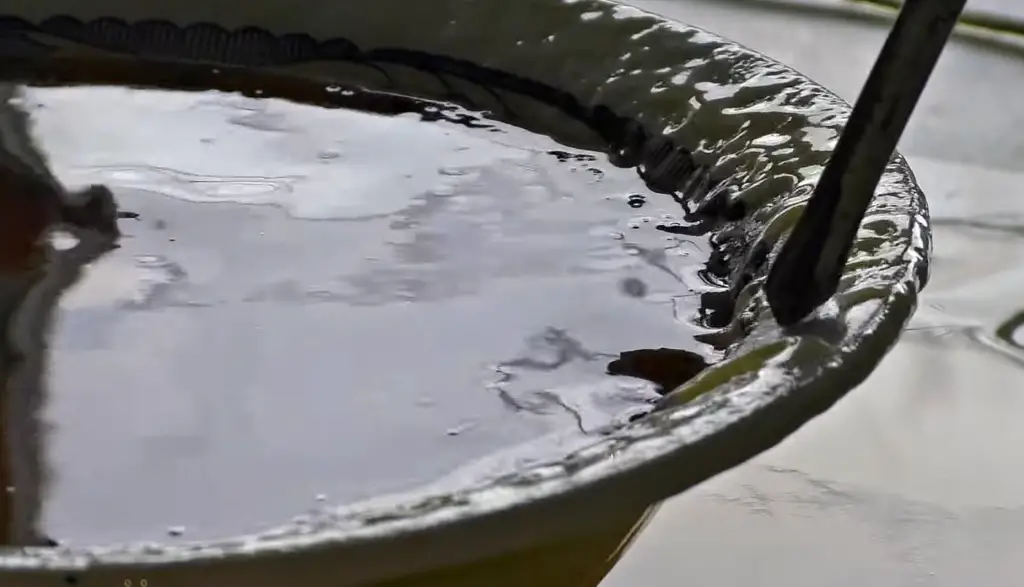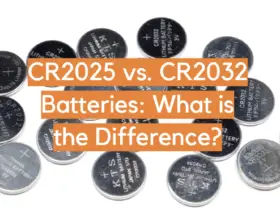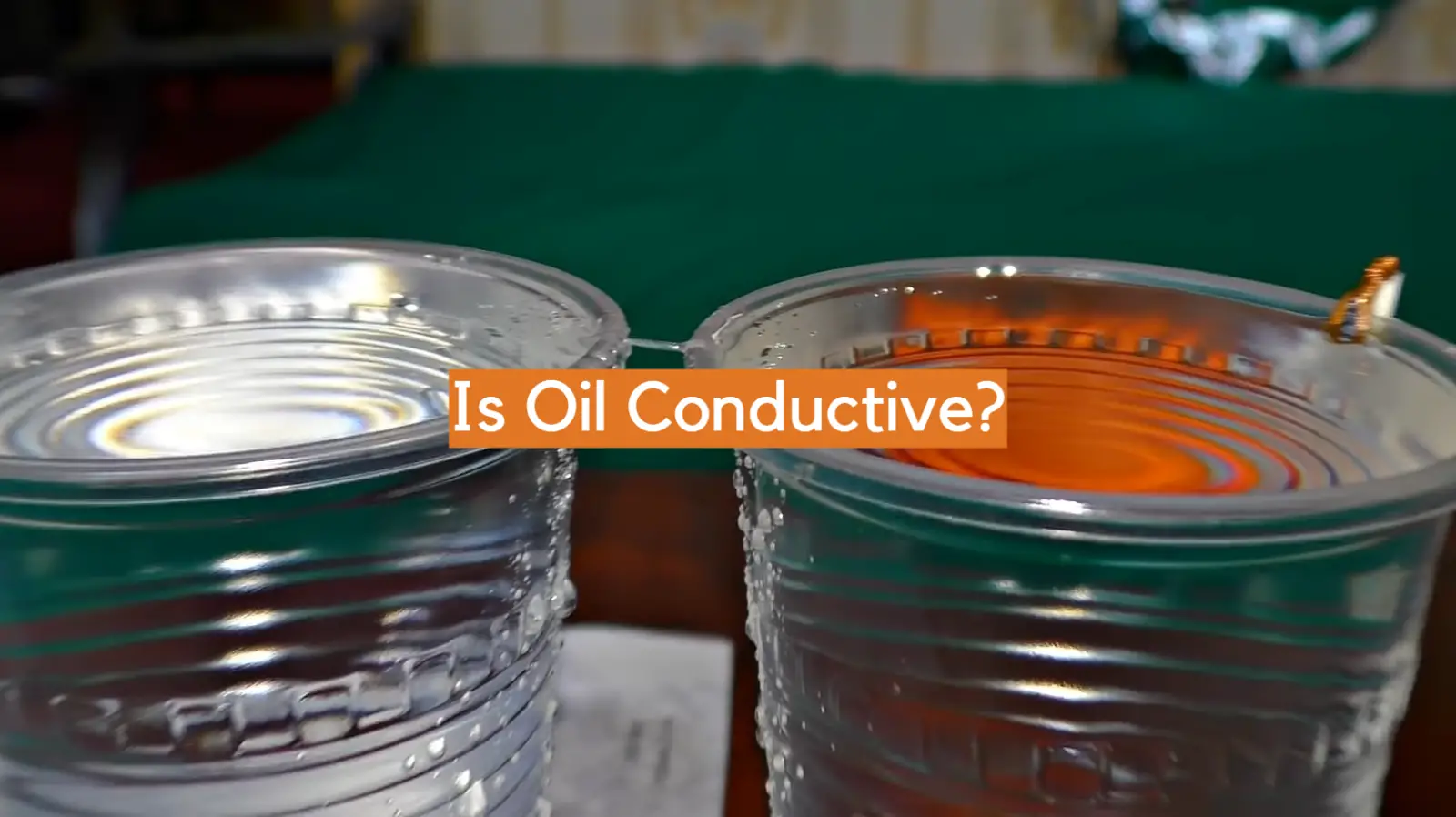Have you ever found yourself working on a project and wondering if oil is conductive or not? This question can be an important one, especially when it comes to the safety and efficiency of your electrical equipment. Knowing whether or not oil is an effective conductor of electricity allows a person to make informed decisions about their projects. Thanks to modern scientific advancements, we now know more than ever before about how this material affects our technology—both positively and negatively. In this blog post, we’ll discuss what effects oil has on conductivity as well as other related topics such as viscosity, insulation values, and more! So read on for insight into the answer of “Is Oil Conductive?”
Is Oil Conductive?

When it comes to heat transfer however, oil can serve as an effective insulating material. Its ability to resist the flow of heat between two objects makes it popular for use in refrigeration systems and other temperature control applications. In these cases, oil can act as a barrier between the two surfaces, preventing or slowing down the transfer of heat energy. It also has a high flash point, meaning its combustible properties are less likely to cause accidental fires or explosions.
Ultimately, while oil is not suitable for most electrical conductivity needs, it does have useful insulation properties that make it ideal for certain applications. When used correctly, it can keep temperatures regulated and help prevent accidents from occurring in potentially dangerous environments. As always, exercise caution when using oil-based products and consult with an expert if you have any questions about their safety and effectiveness.
Structure of Oil
It typically consists of hydrogen (H), carbon (C) and oxygen (O). As such, it is non-conductive by itself as the molecules are held together by covalent bonds which means there are no free electrons to carry a current. The molecule’s size also plays a role in determining whether it can be conductive or not; if oil molecules were large enough to have metallic properties then they would be electrically conductive.
However, this does not mean oil cannot be made electrically conductive under certain conditions. When oil becomes contaminated with other substances such as water and metals, its electrical resistance decreases and it can be made to conduct electricity. This is why oil-filled electrical transformers are sealed in order to maintain their dielectric strength and prevent contamination from outside sources.
In summary, oil by itself cannot conduct electricity due to its structure; however, when combined with other substances that are electrically conductive, it can become a conductor as well. It is for this reason that oil-filled electrical components must be carefully maintained and monitored in order to ensure optimum performance. [2]

Why Oil is Not a Good Conductor of Electricity
Oil is an insulator and not a conductor of electricity. This means that it does not allow the easy flow of electrical currents, unlike metals like copper or aluminum. In fact, oil actually restricts the passage of electricity, making it difficult to transmit any sort of signal through it. Therefore, while oil can be used as a lubricant in machinery and engines, it cannot replace the conductive properties of metal wiring for many applications requiring electricity.
In addition to lacking sufficient conductivity to carry an electrical current, oils also have other qualities that make them undesirable when working with complex circuitry – they are combustible and flammable, meaning sparks or open flames could quickly cause serious damage if oil were to come into contact with them. [3]
Checking the Non-Conductivity of Oil
The non-conductivity of oil can be tested with a simple experiment using materials commonly found around the house. To begin, gather two lengths of wire and attach each to a 9-volt battery. Then, submerge one lead in an oil sample and touch the other lead to a metal plate. If the oil is conductive, then current will flow from one lead through the oil and into the other lead. The metal plate should register some kind of change, such as producing a spark or light bulb illuminating.

To ensure accuracy, it is best to use a substance that cannot be contaminated easily when conducting this test — for example, distilled water or deionized water instead of tap water — so that the results are not skewed. Additionally, it may be beneficial to use an ohmmeter to measure the resistance of the oil sample, as this will allow for a more precise reading of its conductivity.
In conclusion, determining whether or not oil is conductive can be done with a simple experiment using everyday items and a bit of scientific knowledge. Once you have tested your sample and analyzed the results, you should have a better understanding of its electrical properties. With this information at hand, you can then make informed decisions about how to use oil in various applications. [4]
Does Oil Conduct Heat?
The answer is both yes and no. Oil can be a very effective conductor of heat, but it depends on the type of oil used. Some oils are more conductive than others, so it’s important to consider what kind of oil you’re using and its thermal properties before conducting any experiments involving heat transfer with oil. For instance, mineral oils have higher thermal conductivity than vegetable-based oils. Additionally, the viscosity of the oil also affects its ability to conduct heat; high viscosity oils will not be as effective at conducting heat as lower viscosity ones.
In general, however, while some types of oil are better at transferring heat than others, none are superior to water or air when it comes to heat transfer. So, while oil can be a very effective conductor of heat, it’s not the best choice for most applications requiring rapid or efficient heat transfer. Thanks to its high thermal conductivity, however, some types of oil can make for great insulators when used correctly. For example, mineral oils are often used in electrical components as an insulating layer because they help to prevent the buildup of electric charges that could cause damage or malfunction.

Is Oil Safe for Electronics?
Oil is widely used as an insulation material, but it is not safe for all types of electronics. The conductivity of oil is determined by its chemical composition and the type of equipment that it will be used with. Oil can be a good insulator when applied to certain electronic components, such as resistors and capacitors, however it should never be used on circuits containing high voltage or current. When these components are exposed to oil, it can cause damage due to arcing or short circuiting. Even if the oil seems like a non-conductive substance, because of its molecular structure, some oils may become slightly conductive at elevated temperatures. Therefore, it is important to use caution when using oil in electronic devices.
Is the Oil in a Transformer an Insulator or a Conductor?
Oil is often used as an insulator in electrical components such as transformers. However, some oil-based liquids are actually conduits of electricity. The ability of a liquid to conduct electricity depends largely on its chemical composition and properties.
When it comes to transformer oils, the mixture of mineral oil and other organic compounds make them very poor conductors of electricity compared to water or salt solutions. Generally speaking, the oil in a transformer acts as an insulation medium that helps keep electric current confined within the device’s windings or components and prevents short circuits.
However, since transformer oils are composed of different molecules like hydrocarbons, they may have some degree of conductivity when exposed to external factors such as high temperatures, pressure or the presence of contaminants. This means that transformer oils may become conductive if their composition is altered in any way.
To ensure that transformers remain safe and efficient, it’s important to regularly test and monitor the oil for any signs of contamination or changes in its physical properties. Regular maintenance will help reduce the risk of a transformer failure caused by an unexpected increase in conductivity due to an alteration in the oil’s chemical composition. [5]
In conclusion, although transformer oils are primarily used for insulation purposes, their low level of electrical conductivity can be affected by certain external factors. It’s therefore crucial that regular maintenance is conducted on these devices to make sure they remain operational and safe.

FAQ
Is oil a good conductor of electricity?
No, oil is a poor conductor of electricity due to its high resistance and low electrical conductivity. The electrical properties of oil depend on its viscosity, which affects the ability of electrons to flow freely through it. As the viscosity increases so does the resistance which reduces the electric current. Therefore oils with higher viscosities tend to be better insulators than those with lower viscosities. Additionally, many oils contain additives that further increase their resistivity and reduce their overall conductivity. For these reasons, oil is not typically used in electrical applications where conductivity is required. However, certain types of mineral oil can be used as circuit breakers or for cooling purposes in some electrical systems.
Why can’t oil conduct electricity?
Oil is a non-conductive material, meaning that it cannot readily conduct electricity. This is because oil molecules are long and bulky, which makes them insulators – they can’t easily allow current to flow through them. The molecules in oil also lack the free electrons needed for electrical conduction. Therefore, even though some oils contain trace amounts of impurities like sulfur or carbon, they still do not have enough free electrons to form an electric circuit.
What is the conductivity of oil?
The conductivity of oil depends on its composition, but generally it is considered to be a poor conductor. Oil does contain some ions and molecules that can allow the passage of electricity, but not as efficiently as metals or other more electrically conductive materials. Generally speaking, the higher the viscosity (thickness) of an oil, the lower its electrical conductivity will be. Additionally, many oils are also treated with additives which further decrease their ability to conduct electricity. Therefore, in general it can be said that oils are not good electrical conductors. However, this does not mean there are no applications where oil could potentially be used for electric current transfer.
What happens if electricity touches oil?
If electricity is applied to oil, it can cause the oil molecules to break down and form combustible gasses. This can result in an electric arc or spark which could potentially ignite any combustible materials present. Therefore, it is important to ensure that all electrical connections are kept away from any flammable substances, including oils. Additionally, if a person were to come into contact with an energized wire coated in oil they would be at risk for electric shock due to the low conductivity of the oil. For this reason, it is imperative that all electrical wiring and fixtures be kept away from any type of petroleum-based product.
Can you run a PC in mineral oil?
Some enthusiasts have conducted experiments and found that it is possible to submerge a computer in mineral oil, allowing the components inside the case to cool more effectively than air. However, because mineral oil is not an electrically conductive material, there are some additional considerations that need to be taken into account before attempting this.
The biggest concern when running a PC submerged in mineral oil is electric shock hazard. Since mineral oil does not conduct electricity, any electrical currents will remain within the insulated environment of the PC case, increasing the risk of electric shock if someone were to touch it while it was still powered up. Therefore, extra precautions must be taken when using this cooling technique: all power sources should be disconnected from the system before putting it into the oil, and all exposed wires should be covered with an insulating material. Additionally, the mineral oil should be changed out periodically to prevent it from becoming contaminated with corrosive materials or debris that could damage the hardware.
Useful Video: Oil VS High Voltage!
Conclusion
In conclusion, oil is not a good conductor of electricity. It has low conductivity and does not have the necessary properties to effectively transfer electrical current from one point to another. Moreover, it can be hazardous when used in certain applications due to its flammability and potential for electric shock. Therefore, the use of oil should be avoided when working with electricity or any related applications. With that being said, there are alternative materials that have better conductivity levels and can be used in place of oil when conducting electricity safely and efficiently.
References
- https://lambdageeks.com/does-oil-conduct-electricity/
- https://www.machinerylubrication.com/Read/29407/oil-condition-monitoring
- https://dfarq.homeip.net/is-oil-conductive/
- https://oilgenesis.com/is-engine-oil-conductive-a-comprehensive-guide/
- https://www.circuitsgallery.com/is-oil-conductive/














Leave a Reply